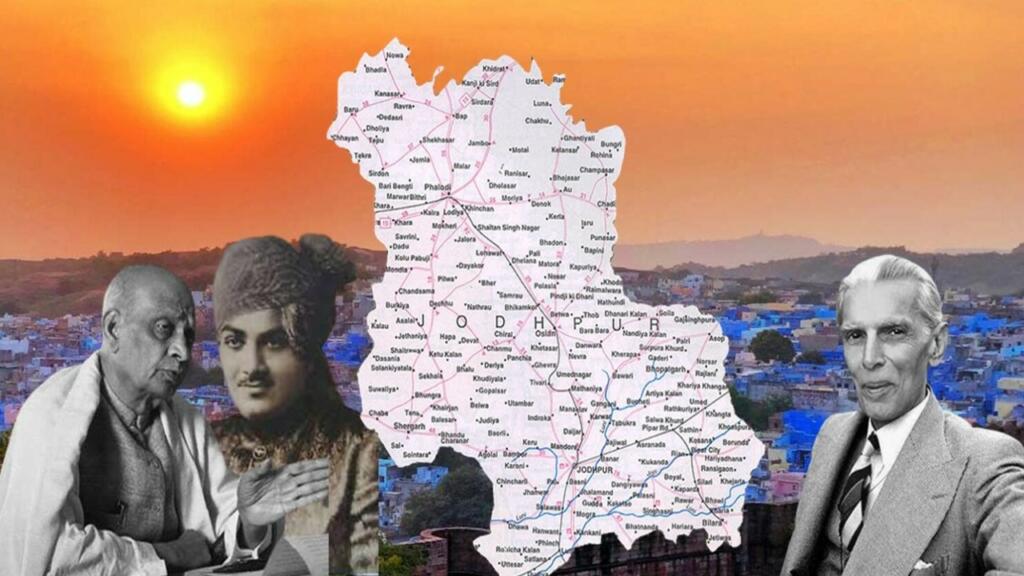Merger of Jodhpur in India: As India was on the brink of independence in 1947, so were the princely states, which were about to become independent as well. However, most of the princely states were not willing to join India and were vying for independence. This was where Sardar Vallabhbhai Patel came into the picture, who was entrusted with the task of convincing the princely states to join India.
One such state was Jodhpur, which was then known as Marwar. Maharaja Hanwant Singh, who was then at the helm of affairs, was not keen on joining India and was even entertaining the idea of joining Pakistan. This posed a major threat to India’s integrity and would have severely weakened its position in the coming war. Sardar Patel realized this and held a special meeting with Maharaja Hanwant Singh.
Also read: The truth of Qutub Minar
Jodhpur
During the meeting, Sardar Patel reminded Maharaja Hanwant Singh of his obligation towards his people and assured him that Jodhpur would be connected to the port of Kutch. This convinced Hanwant Singh to agree to the merger or Jodhpur with India. However, his ego was hurt and his anger erupted during the meeting where Lord Mountbatten and VP Menon had gathered to officially merge Jodhpur with India.
VP Menon narrated how in a fit of anger, Hanwant Singh pointed his hand-crafted pistol at him. However, it was not frustration but anger that had no direction. Finally, Hanwant Singh agreed to the merger of Jodhpur and by September 1947, Jodhpur was merged with India.
Also read: 100 years of Hindustan Republican Association: A Journey of Courage and Conviction
This incident not only showcased Sardar Patel’s leadership skills but also earned him the title of the “Iron Man”. His unwavering commitment to the nation’s unity and his ability to convince the stubborn princely states to join India were instrumental in India’s successful integration.
Merger of Jodhpur: Sardar Patel’s skill
The story of merger of Jodhpur with India is a testimony to the complex and arduous task of uniting a diverse and multifaceted nation like India. The princely states, which were once independent and ruled by powerful kings, were not willing to give up their sovereignty and join India. However, it was imperative for India’s survival and integrity that these states be integrated into the Indian Union.
Sardar Patel’s success in convincing the princely states to join India was not only due to his political acumen but also his ability to empathize with the rulers and understand their concerns. He was not afraid to make concessions and promise more facilities to the rulers than they had in their independent states.
Also read: Malik Ambar and the Maratha Connection: A Tale of Strategic Alliances
Integration
This incident also highlights the importance of effective communication and negotiation skills in politics. Sardar Patel’s ability to connect with the rulers, listen to their grievances, and address them in a pragmatic manner was crucial in convincing them to join India.
The incident of merger of Jodhpur with India is a testament to Sardar Patel’s leadership skills and his unwavering commitment to the nation’s unity. His ability to negotiate and communicate effectively with the rulers of the princely states played a pivotal role in integrating India. Today, India is a diverse and vibrant nation, and it is the unity of its people that makes it a force to reckon with in the world.
Support TFI:
Support us to strengthen the ‘Right’ ideology of cultural nationalism by purchasing the best quality garments from TFI-STORE.COM
